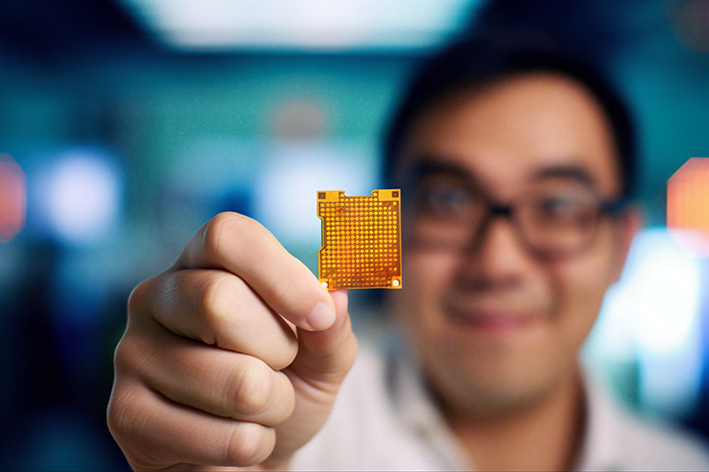Several Facts about China Chips Industry
The development of the chips industry in China has gained significant attention in recent years. As geopolitical restrictions and trade tensions continue to shape the global landscape, China has been actively striving to reduce its dependence on foreign chip technology and establish a self-sufficient semiconductor ecosystem.

Geopolitical Restriction on China Chips Development
China's progress in the chips industry is evident, with notable advancements in both research and manufacturing capabilities. The country has been investing heavily in research and development, fostering innovation, and attracting top talent to drive technological breakthroughs. This commitment is reflected in the steady growth of domestic chip companies and the rise of homegrown semiconductor giants.
Geopolitical restrictions have further fueled China's determination to enhance its chip capabilities. By reducing reliance on foreign suppliers, China aims to strengthen its national security while achieving technological independence. This strategic approach includes initiatives such as boosting domestic production capacity, improving chip design capabilities, and supporting local companies throughout the supply chain.
China's progress in the chips industry not only has implications for its own economic growth but also holds global significance. As one of the largest consumer markets and a major player in various industries, China's ability to develop advanced chips can impact sectors ranging from telecommunications to artificial intelligence.

In conclusion, China's relentless pursuit of self-sufficiency in chip technology is driving significant progress within its domestic industry. By overcoming geopolitical restrictions and investing heavily in research and development, China aims to establish itself as a key player on the global semiconductor stage. The implications of this progress extend beyond national borders, making it an area worth observing closely as it continues to unfold.
Semiconductor Development in China Mainly Called as Chips Self Development
Semiconductors, commonly known as chips, are the core components of modern electrical devices. They play a crucial role in powering and controlling various electronic systems. In recent years, China has emerged as a major player in the semiconductor industry, with significant advancements in chip development and manufacturing.
China's focus on semiconductor technology has led to the establishment of numerous research institutes and companies dedicated to pushing the boundaries of electrical component development. This has resulted in a steady increase in the production and supply of high-quality chips from Chinese manufacturers.
When it comes to top suppliers of semiconductors, China boasts several prominent players that have gained recognition on a global scale. These companies have invested heavily in research and development, ensuring that they stay at the forefront of technological advancements.

The importance of semiconductors cannot be overstated, as they are integral to powering our everyday devices such as smartphones, computers, and even automobiles. As China continues to invest in chip manufacturing capabilities and innovation, we can expect further advancements that will shape the future of this critical industry.
Huawei is a Great Example on China Chips Industry
Huawei has consistently demonstrated its ability to break through in the field of chips, solidifying its position as a leader in China. With a relentless pursuit of innovation and cutting-edge technology, Huawei has managed to stand out in the highly competitive chip market.
The company's commitment to research and development has allowed them to develop their own chipsets, reducing their reliance on external suppliers. This level of independence not only ensures a steady supply chain but also allows Huawei to customize their chips according to their specific needs.
Huawei's breakthroughs in chip technology have not gone unnoticed. Their chips have been praised for their performance, efficiency, and advanced features. This has enabled Huawei devices to deliver exceptional user experiences across various product categories, including smartphones, tablets, and wearables.
Furthermore, Huawei's investment in chip manufacturing facilities showcases their long-term vision and dedication to maintaining technological leadership. By having control over the entire production process, from design to manufacturing, Huawei can ensure quality control and drive further advancements in chip technology.
As China continues its ascent as a global technology powerhouse, Huawei's success in chips serves as a testament to the country's growing capabilities. With each breakthrough they achieve, Huawei reinforces its position as an industry trailblazer that is reshaping the future of semiconductor technology not only within China but on a global scale.
Chips Manufacturing Stands for a Country Technology Level
Chips, also known as microchips or integrated circuits, have revolutionized various fields of technology. These tiny devices have become an integral part of our daily lives, powering everything from smartphones and computers to cars and medical devices.
One of the key uses of chips is in the field of telecommunications. They enable seamless communication by providing efficient data processing and transmission capabilities. Without chips, our modern communication networks would not be able to handle the vast amount of data that we generate and consume every day.

In addition to telecommunications, chips are also extensively used in the field of computing. They form the backbone of computers, enabling them to perform complex calculations and process large amounts of data quickly and efficiently. From laptops to supercomputers, chips are at the heart of every computing device.
Moreover, chips find applications in industries such as healthcare and automotive. In healthcare, they power medical devices like pacemakers and insulin pumps, enabling precise control over patient care. In the automotive industry, chips are used in various systems such as engine management, safety features, and entertainment systems.
The versatility of chips extends beyond these fields as well. They are utilized in consumer electronics like televisions and gaming consoles for enhanced performance. Additionally, they play a crucial role in renewable energy systems by optimizing power generation and distribution.
As technology continues to advance at a rapid pace, we can expect even more innovative uses for chips across various industries. From artificial intelligence to internet-of-things devices, these tiny marvels will continue to shape our future by powering the technologies that drive progress.
Chips have become indispensable in today's world due to their wide range of applications across different fields such as telecommunications, computing, healthcare,
automotive industry etc.. Their ability to process data quickly and efficiently has transformed how we live and work. As technology continues to evolve,
we can only imagine what new possibilities lie ahead for this remarkable piece
of technology - the chip.

